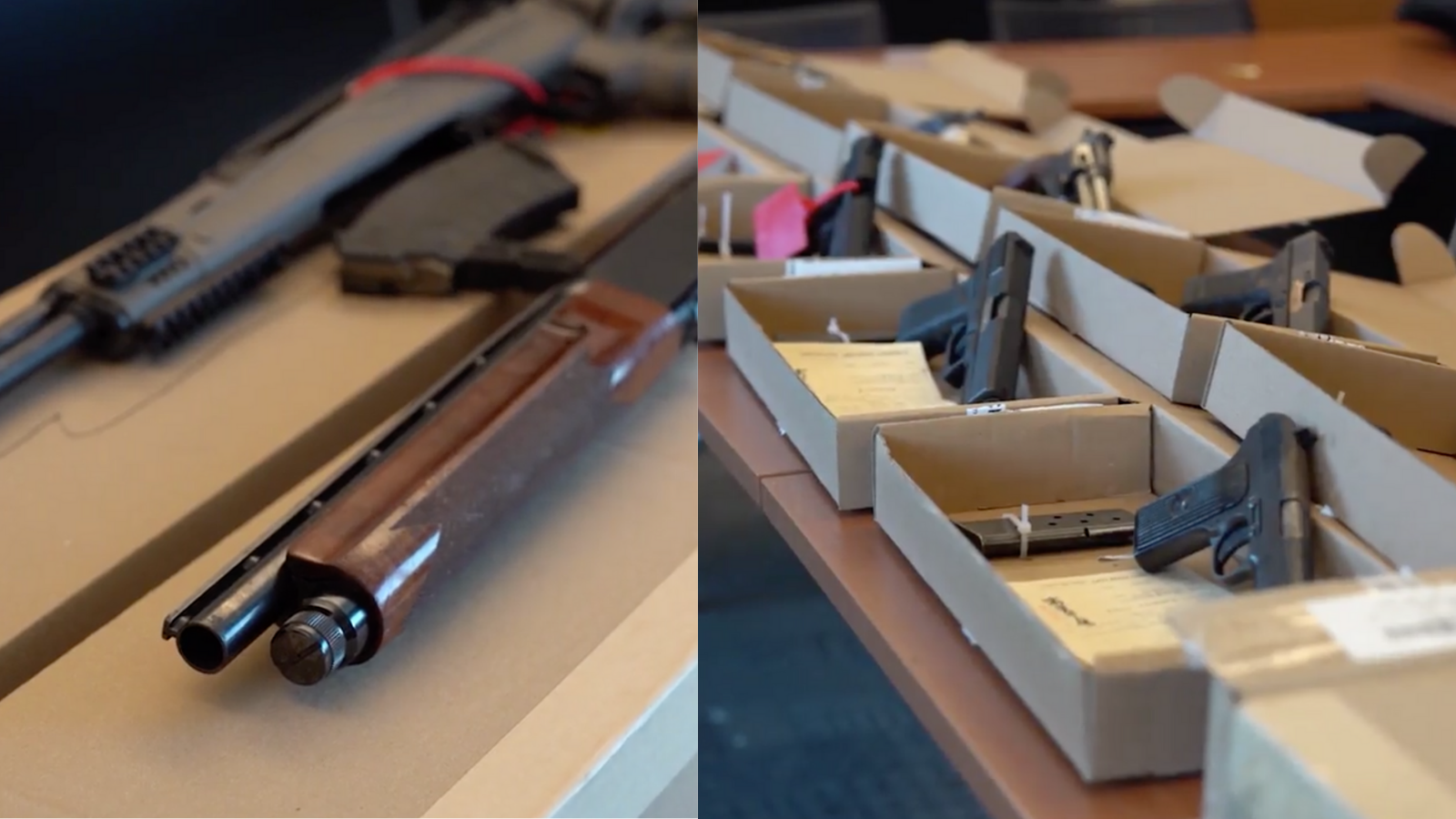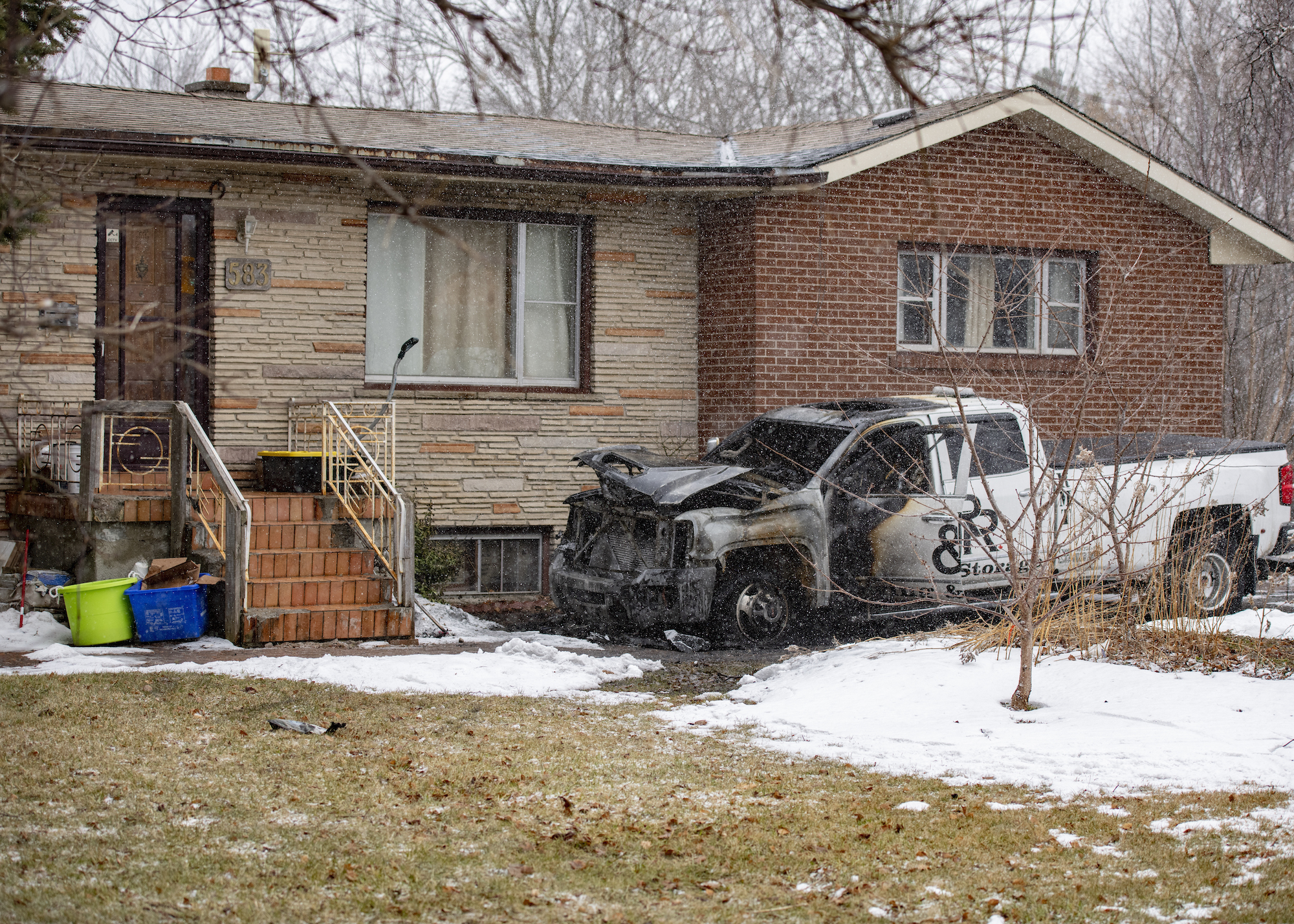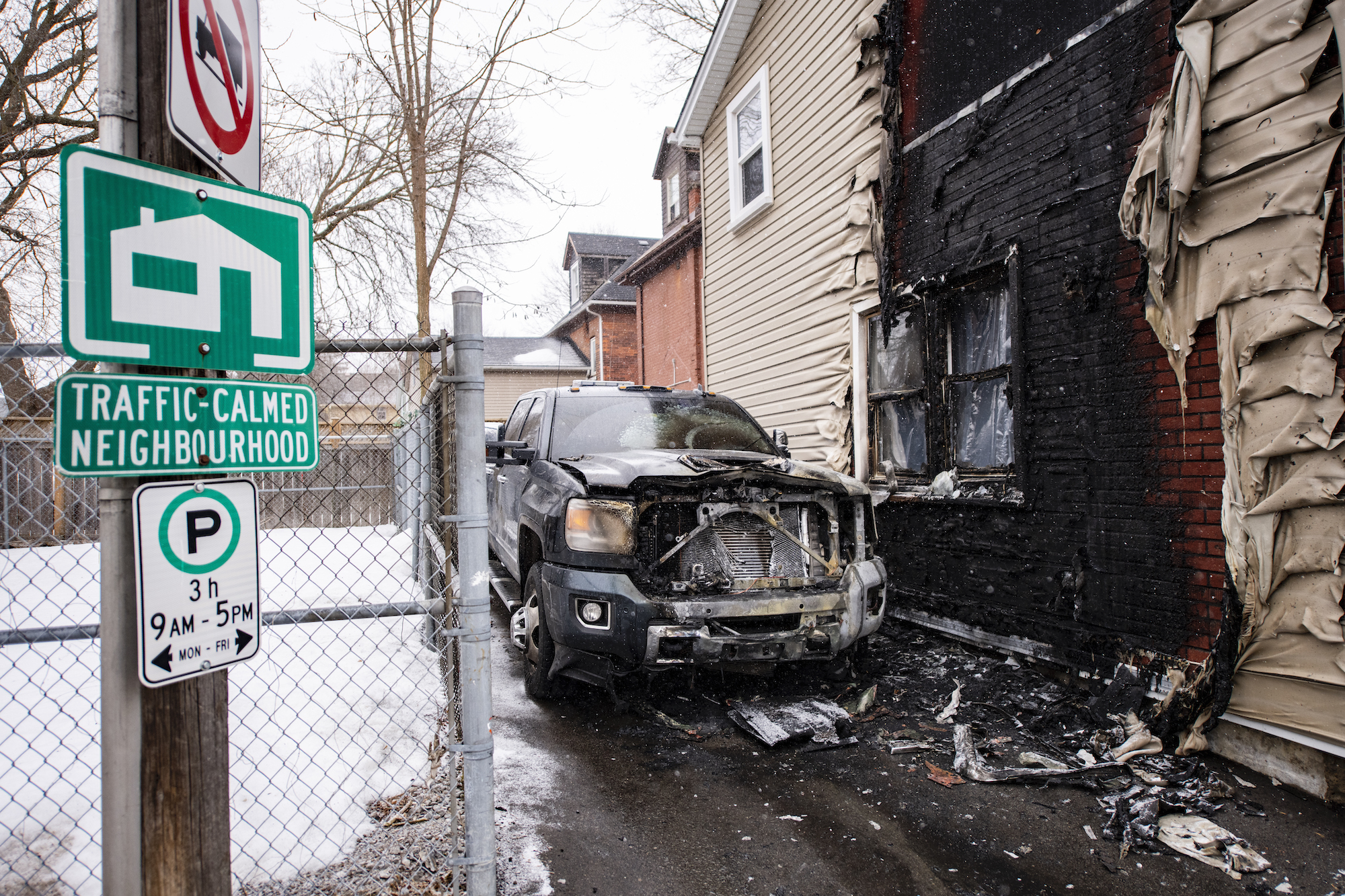As Toronto's tow-truck turf war heated up it felt like trucks were always on fire.
“Last year, they were burning trucks every weekend,” Joey Gagne, who runs the largest tow truck company in the Greater Toronto Area, said. “Just trucks on top of trucks are burning... It was horrific.
“Then guys get beat up and some get stabbed and a couple of guys get shot and things just kept escalating.”
The towing industry has always been hard-nosed, but this was different. Over the past few years in and around Toronto, people were killed, drugs were run, weapons were stockpiled, trucks were burned, and car crashes were orchestrated. All of this was laid at the feet of four tow-truck “cartels” jockeying for control of Toronto's towing scene. For a little while, it was as if Tony Soprano and Paulie Gualtieri had purchased themselves some F-550s.
Project Platinum
After years of violence connected to the tow-truck industry, and months after a Globe and Mail investigation, police made a move. Beginning in March, York Regional Police, Ontario Provincial Police, Toronto Police Service, and Canada Revenue Agency have made more than 20 arrests and laid over 100 charges. They expect there to be more arrests.
Inspector Mike Slack, head of York Police's organized crime unit, said they believe four distinct tow-truck “cartels” were operating in the GTA. Police allege that "competition for control of the towing market resulted in murders, attempted murders, shooting, assaults, arsons, threats, and property damage.”
“Organized crime does not always come in the form that we expect. It does not always have a name like ’Ndrangheta, the Mafia, or street gangs. Its members do not always wear colours,” said Slack.

So far police have connected two murders to the tow-truck turf war. The first occurred in December 2018 when Soheil Rafipour, a 33-year-old man with connections to the towing industry, was killed in a hail of bullets outside a home in Richmond Hill. In January 2019, several men entered the apartment of Lingathasan Suntharamoorthy, 36, and shot him several times. Arrests have been made in connection to both murders. The Toronto Sun reported that Suntharamoorthy’s family said he worked as “muscle” for the towing industry. Other tow-truck drivers have been killed—including in early May where a young man, Hashim Kinani, was shot execution-style in his truck—but police have not yet connected them to the turf war.
In what they call Project Platinum—a police investigation named after a premium towing package that started in February and was executed in May—police carried out more than 40 warrants and seized 11 tow trucks, 16 handguns, 13 shotguns, a "machine gun," nine rifles, a sawed-off shotgun, an air pistol that had been turned into a .22 rifle, thousands of rounds of ammunition, brass knuckles, and two tasers. They also seized 5 kilograms of fentanyl, 1.5 kilograms of coke, 1.25 kilograms of meth, and 1.5 kilograms of cannabis, alongside $500,000 in cash.
Police alleged the groups would gouge customers on towing fees, move their car around so they would have to pay inflated impound fees, charge for imaginary damage to vehicles, or just damage the vehicle themselves. Police also alleged the tow truck cartels worked with repair shops and physiotherapy clinics that were either in on it, or gave them kickbacks.
“Any aspect that could be dirty, was dirty,” said Slack.
Burned trucks and faked crashes
Multiple tow truck drivers who spoke to VICE said they weren't surprised there was an organized criminal element in the towing business.
“It doesn't take a rocket scientist to look at the towing industry and say, ‘Well, that would be a good way to, let's say, smuggle drugs,’” said Gavin, a driver who didn't want to give his last name because he was worried about retaliation. “If I pick up a car on the side of the highway or a parking lot at night from wherever, am I going to get looked at by the police and think that guy is up to something? No.”
Shawn Michaud, a tow-truck driver who recently left the industry after eight years, said he and other drivers call it the “Wild, Wild West.” Michaud, who operated on the outskirts of the GTA, claimed that the closer you got to downtown Toronto the more crooked the game would get.
As reported in February in Molly Hayes’ detailed Globe and Mail investigation, the cartels protecting their turf went past intimidating fellow drivers. In one case, they allegedly targeted a Vaughan law firm that took work on behalf of the insurance industry. Carr Law had its offices lit on fire multiple times, shot at, and its employees threatened at gunpoint. One man reportedly pointed a gun at a lawyer at the firm and told them to "stop suing my friends” before hitting her with the gun and stealing her wallet. The intimidation got to such an extreme level the firm shut down permanently. One video released by York Regional Police shows a man breaking the law firm’s glass door, pouring gasoline inside, and igniting a large fire before driving off.
Police say if the drivers weren't making enough from the drug running and hiked-up towing rates, they would orchestrate their own accidents to drum up business. This would involve recruiting two drivers—one at fault and the other not—and finding vehicles that would pay well via the insurance company, then ramming then into each other and overcharging the insurance company.
Like with most organized crime, the tow cartels sometimes worked together and at other times battled. It was sophisticated, said Slack, and, “as the tow companies' networks grew, they built allegiances and established hierarchies.” VICE reached out to several of the tow-truck companies alleged to be involved in the criminal actions but none of them responded.
Corruption in the tow-truck industry isn’t new. In Canada, we’ve seen tow-truck drivers working with police officers for a kickback scheme in Ottawa. The towing industry in Montreal was found to be corrupt in a 2017 report by the province’s inspector general. In the United States, Houston is seeing “flipping schemes” running wild. And in Washington, D.C., drivers bribed officials with upwards of $50,000 so his company would get good contracts. On the ground level, tow-truck drivers who spoke to VICE said there's a wide variety of methods an unscrupulous tow-truck driver can rip off an unsuspecting customer.
On top of corruption, threats and violence aren't out of place in the competitive world of towing. This is particularly true in the world of chasers—the tow-truck operators whose living comes from them getting to accidents quicker than their competition. Gavin said he was introduced to this aspect on one of his first days on the job.
“When I first started working, I was getting fuel at a gas station and another tow-truck driver pulled up and started getting fuel,” said Gavin. “I didn't really know the guy but I know he did a lot of work on (Highway) 401 and around. So I said, 'Hey, how's it going,' trying to be friendly. We shot the shit for a few minutes. As he left, he said while shaking my hand, 'If I ever see you on one of my routes, I'm gonna punch you out in the ditch.”
Police say the tow-truck cartels grew out of this ultra competitive world of chasing.

Michaud said that even tow-truck arsons aren’t a new thing in Ontario’s industry. In one small town he worked in, Michaud says one tow-truck driver was targeted several times in a “get off my turf sort of thing.”
“He had his truck burned twice in two years in his driveway and then had every vehicle he had in his compound lit on fire one night,” said Michaud. “So it's shocking, but it's not, right?”
First to the scene
Several of the tow-truck industry workers VICE spoke with indicated that at the heart of the problem is a system that awards chasers. One video posted to YouTube shows three “heavies”—large tow-trucks—literally running into one other on an Ontario highway to be the first on the scene. This, Michaud says, is the “rot” eating away at the heart of the tow-truck industry.
“For years I (hated) chasers because of the way they did business. All they cared about at the end of the day was the bottom dollar,” said Michaud. “The general public was never their first concern. Their first concern was their pocketbook. But they’re just operating within a system they’ve been given.”
Gagne actually tells his employees to stand down if they encounter a particularly heated chaser or someone affiliated with the “cartels.”
"There have been numerous occasions where our tow truck drivers have been threatened with some sort of retaliation,” he said. “You see trucks getting burned and people getting shot and beat up. You know, I have to protect my staff by saying: 'Listen, we're not participating in any of that. So, if you get to a job and you don't feel safe, it's time for you to drive away.'”
Gagne and others are pushing for a change from the first to the scene system. One alternative is a rotating system, in which certain companies and operators get calls at a particular time.

John Henderson of the Provincial Towing Association of Ontario says that at the end of the day, there needs to be stricter licensing regulations. There is no real barrier of entry for the tow-truck business other than the keys to a tow truck.
"It's simply because there is so little regulation... There are no laws," said Henderson. “It's like, I can put a stinger (wheel lift) on the back of my Escalade and when I'm not running drugs I can pick up a vehicle for $500 or $600."
While Slack says he expects the "extreme level of violence" to "diminish," the drivers aren't so sure. Gagne says things have been tapering down with COVID-19 and the arrests but he doesn’t think the problem will go away until systematic change is implemented. The arrests and media taking notice will help but not address the root problem.
All of the drivers who spoke to VICE were adamant that the criminal and chasing aspects of the towing industry is only a small portion of the community, but one raucous enough to permanently stain the reputation of all towers in Ontario.
“I got into this industry, wanting to help people, and that's what everyone should get into this industry for,” said Gavin. “Everyone should be a decent human being and just try (to) help people having a bad day.”
Follow Mack Lamoureux on Twitter.
from VICE https://ift.tt/3d6jBYQ
via cheap web hosting
No comments:
Post a Comment